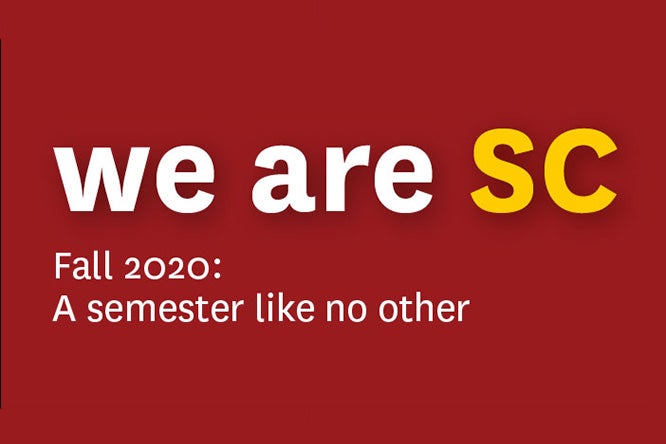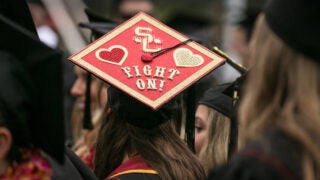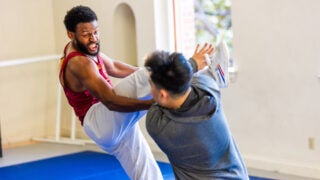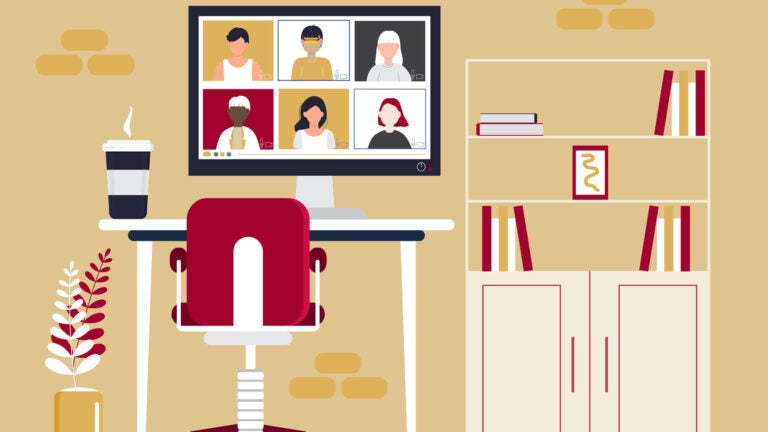
A fifth of undergraduate students in the United States have a diagnosed condition that can affect their learning. (Illustration/iStock)
College students with learning disabilities grapple with pandemic’s effects
Learn how students with diagnosed learning differences like autism or dyslexia are faring with remote learning — and how USC can help.
Random sights and sounds can easily distract Aylish Turner while she studies or listens to college lectures, due to her attention deficit hyperactivity disorder. Now, she worries that COVID-19 may make it even harder to concentrate because she has to take classes from home instead of on campus.
“I have trouble managing my priorities,” the USC sophomore said. “If something is more personally interesting to me, I’ll spend more time on it, even if I don’t have to.”
Turner isn’t alone — many college students nationwide are grappling with stress and anxiety linked to COVID-19 and the move to remote learning. Experts are particularly concerned about the troubling effects on students with learning differences like dyslexia, attention disorders or visual or hearing impairments.
“Especially our neurodiverse folks, people with autism or anywhere on the spectrum, they love routine,” said Julie Loppacher, director of the USC Kortschak Center for Learning and Creativity. “What do you think this pandemic did? COVID showed up on our doorsteps and changed everything they knew.”
Turner and other USC students often turn to the USC Kortschak Center for support and resources. Academic coaches have already taught Turner useful strategies like creating a detailed personal planner and designating a distraction-free zone in her family’s home in Scottsboro, Ala.
As she studies for her degree in interactive entertainment at the USC School of Cinematic Arts, the 18-year-old now has more confidence that she can deal with daily distractions — like younger siblings playing football in the house or having all her belongings within eyeshot.
“My experiences have been positive overall,” she said. “But people should keep in mind that it’s not a fix-all thing. You get the advice and then you actually have to implement it, which can be hard. But I’m looking forward to the fall, and I hope it goes well.”
Amid pandemic, USC specialists help students adjust to online classes
A fifth of undergraduate students in the United States have a diagnosed condition that can affect their learning, according to the latest data from the National Center for Education Statistics. At the USC Kortschak Center, a team of specialists in areas like occupational therapy, academic planning, counseling and educational psychology offer tailored recommendations to overcome obstacles to success in school and beyond. And they are ready to handle challenges related to COVID-19 and online learning.
“We recognized really quickly we need to be prepared for all students, but especially those with learning differences,” Loppacher said. “This shift that some of us can navigate quite easily is not so easy for other folks.”
Most young students are comfortable with technology and connect with others that way, she said. But they still may feel lonely, isolated or doubtful about their ability to succeed in online classes.
To help with the transition, the USC Kortschak Center team created new workshops, including one called “Thriving as a Trojan Online.” It outlines advice like establishing a place at home for schoolwork, removing distractions and setting a daily schedule. Students can also view other workshops on demand like “Successful Online Learning Strategies,” “How to Build a Schedule for Productivity” and “Meaningful Activities to Help You Fight On.”
The center offers daily drop-in group sessions, where students can ask questions and meet with an academic coach. They can schedule one-on-one meetings to talk through their needs. Students receive services at no cost.
During COVID-19 and beyond, online education can benefit students with learning differences
Though online learning can pose challenges, it might also benefit students who struggle with aspects of in-person lectures, educators say.
“Some classes have been video or audio recorded, which can help individual students’ learning needs,” said Janice Schafrik, clinical training director at the center. “A student can stop, pause a video, listen and engage in their own way.”
The USC Kortschak Center’s Juliana Calhoun has seen similar advantages. She met with a student with severe social anxiety a few weeks before COVID-19 prompted USC to go virtual in mid-March. Because of her trouble speaking up in groups, the student was concerned about an upcoming class assignment.
“She had a big presentation, but it got moved online,” said Calhoun, the center’s assistant director and a learning specialist. “She said she was feeling good and was not as nervous. Once everything moved online, she said she didn’t need to meet with us anymore. She was feeling much better.”
However, online learning shouldn’t be viewed solely as a blessing for students who struggle with social anxiety or other learning challenges.
Rashelle Nagata, a learning specialist and occupational therapist at the USC Kortschak Center, said although remote classes can help some students feel more comfortable by limiting their exposure to stressful social situations, it can also harm their progress.
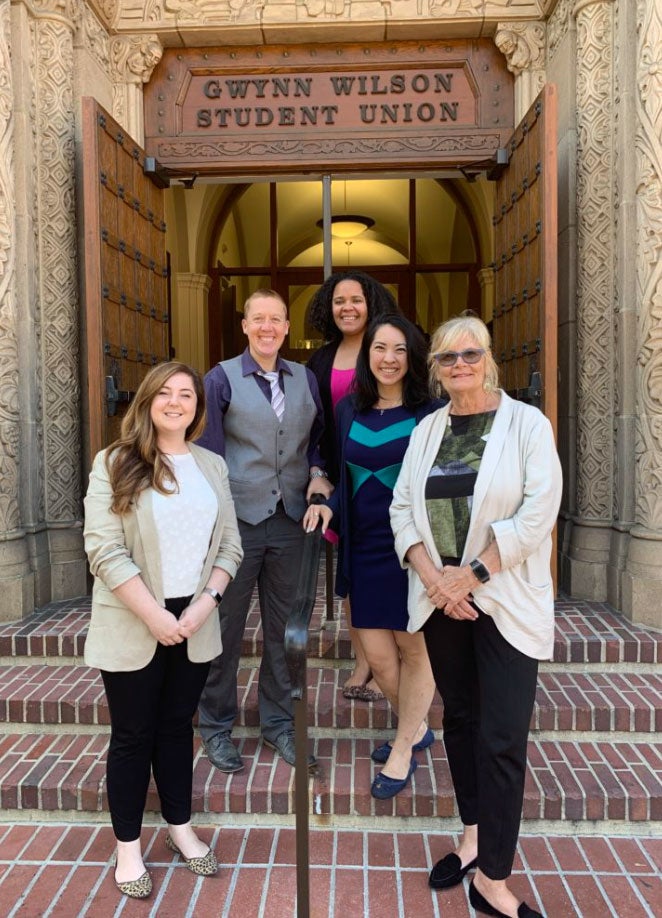
To help students with similar experiences connect with one another, the center offers support groups geared toward enhancing learning strategies for specific populations such as first-generation college students or those diagnosed with ADHD.
All USC students can access academic support at USC Kortschak Center
Students may also need help customizing a daily schedule for their unique body clock. One student might thrive with a study schedule from 10 a.m. to 2 p.m. Another could be more productive from 7 p.m. to midnight. Online courses can provide flexibility to take advantage of this timing, and USC Kortschak Center specialists adapt their advice based on what works best for each student they help.
As Turner enters her third semester as a Trojan, she plans to check in with experts at the center again to see if they have more suggestions to help her thrive. She spends a lot of time on her computer — designing games and other interactive media — and she wants to avoid being distracted or overwhelmed.
“I remember them saying that if you have a desk in a room, that can be your work corner and you can clear out all the physical distractions,” she said. “Just have your laptop, your notebook for the class and maybe a corkboard for reminders. That was pretty helpful because I have a lot of clutter. So I do try to have my minimalist corner.”
She also learned how to break down tasks into smaller, manageable chunks, but she still worries about losing concentration, especially with a two-hour time difference and several evening classes this semester.
“I do have one class that’s a 3D animation lab from 9 p.m. to midnight,” she said. “It’s not the worst, but I’m going to be sleepy.”
Turner also sees the upside to online coursework. She has more time now that she doesn’t have to walk to class or an off-campus production lab. She doesn’t miss vital information during lectures or meetings because they are all recorded. And she gets more sleep and enjoys homecooked meals prepared by her mom.
She’s grateful for the advice from USC Kortschak Center specialists to ensure a smoother transition to a new way of learning. And she encourages other USC students to check out the center’s services, even if they don’t have a diagnosed learning difference.
“I got recommended by my friends, who as far as I know, don’t have any learning limitations or differences,” she said. “I feel like the average student would benefit.”

